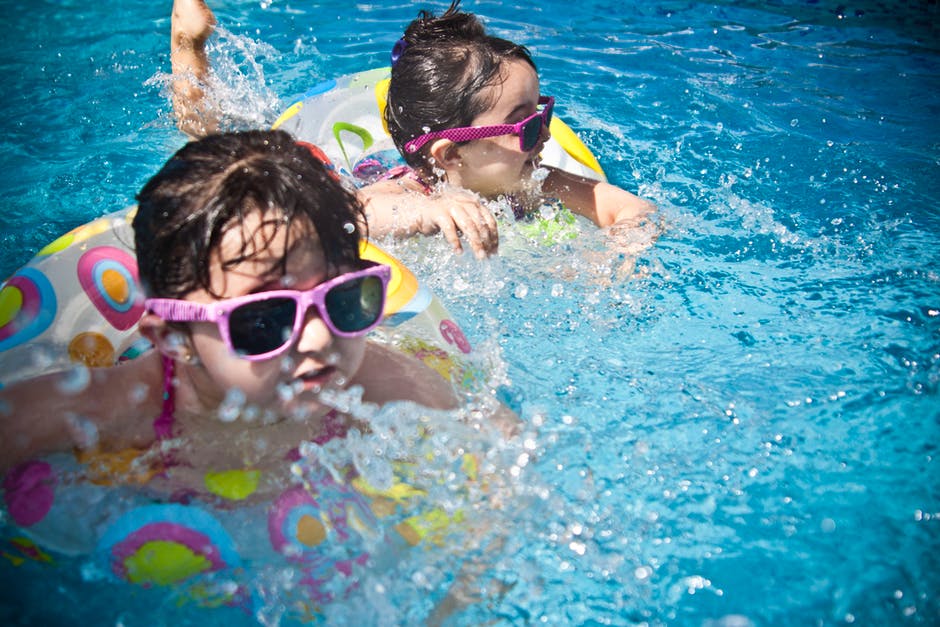Did you know that feces are frequently introduced into pool water by swimmers?
Doesn’t this make you think of all the pools you have ever been swimming in? You’ve heard that public pools are nasty, but exactly how nasty are they?
Read on to learn why there’s probably poo in the pool your kids swim in.
Is the Poo in the Pool? What You Didn’t Know About Public Pools
Swimming is one of the favorite past times for children, but what many parents don’t realize is that their children can actually be swimming with poo in a public pool. This might be a reason to consider having a custom private pool built in your home instead.
Poo is not the only nasty thing in a public pool. Reading this post is going to surprise you.
Poo
Can you believe that up to ten grams of poop can wash off a child’s butt in a pool? This doesn’t sound like a large amount, but take ten grams and multiply it by the number of kids in the pool. Yes, it adds up.
A survey done by the Water Quality and Health Council reported that 1 in 4 adults goes swimming within one hour of having diarrhea. This is another way poo makes its way into public pools.
Chlorine
First, let’s chat about chlorine, which we all know is used in almost every public pool. This is to keep pools blue and safe by killing bacteria. But unfortunately, it can only do so much when there are dozens of sweaty bodies swimming around.
Sunscreen, sunlight, and the levels of urine absorb the effectiveness of the chlorine.
Pee
That’s right, you read that correctly. Pee or urine is found in public pools. A survey done shows that one fifth out of 1000 people admitted to urinating in a public pool.
If you are concerned about urine and want to check the cleanliness of public pools, you can purchase test strips to see how much chlorine and urine are in the pool, along with the pH level of the water.
Cryptosporidium
Cryptosporidium outbreak doubled from 16 outbreaks in 2014 to 32 outbreaks in 2016. Crypto causes almost half of all outbreaks of gastrointestinal problems which are caught in recreational waters. This is one of the few microorganisms that are able to survive chlorine.
When chlorine is dissolved in water, it breaks down into two chemicals that destroy a microorganism’s protective wall. But with Crypto, the coating is so thick that the chlorine isn’t able to break through the walls.
Even if a pool is properly chlorinated, crypto microorganisms still survive. One child that goes swimming after having an infection can spread crypto into the entire pool.
If the pool doesn’t have the right balance of disinfecting chemicals, crypto won’t be your only concern.
The following microorganisms will have their own effects:
- Pseudomonas – pus-filled rashes
- Legionella – fever, and cough
- Shigella – diarrhea
- Giardia – diarrhea
- Norovirus – diarrhea
- E-coli – diarrhea
All public pools are full of microorganisms ready to make you sick.
Health Code Violations
8 out of every 10 pool inspections find serious health code violations. Out of those eight, one of those will be serious enough to shut down a pool immediately. These violations are usually due to not putting enough disinfecting agents in the pool.
RWIs
This stands for Recreational Water Illness, and it’s caused by the spreading of germs in contaminated water. This can be caused by chemicals in the water or chemicals the evaporate from the water.
This can cause health issues like gastrointestinal problems, skin rashes, and respiratory trouble, just to name a few.
No Bathing or Showering
Most people swim without showering or bathing first. This can cause bacteria to spread throughout the entire pool. When people don’t shower before swimming, they can release particles of feces, sweat, and pee.
All of the above can cause a number of health issues.
Strong Smell
When you smell a pool from a mile away, it doesn’t mean the pool is clean as most people believe. It’s actually a sign that there’s not enough chlorine in the water. The chlorine combined with bodies, urine, and feces gives off this strong chemical smell.
The combination of urine, feces, and bodies use up all of the chlorine and then it’s less likely to kill off germs. A well-chlorinated pool should have very little odor.
Red Eyes
Have you ever swam in a public pool and your eyes begin to sting and eventually turn red? The assumption by most people is that it’s from too much chlorine, but it’s actually the urine in the pool water.
When the urine combines with chlorine, chloramines are produced. The chloramines give off a chemical odor that makes the eyes sting and become red.
Band-Aids
The floating band-aid in the pool water is not the prettiest sight. When you have an open wound, it’s advised that you stay clear of pools because of harmful bacteria that can spread to other swimmers. Or, harmful bacteria could get into your wound and make it worse.
Hairballs
Hairballs are not only gross, but they can also be the hair from a person who suffers from a bacterial infection. They can either suffer from folliculitis, furuncles, or carbuncles, and this ball of hair can be spreading this around the entire pool.
Lice
It’s recommended to have your hair tied up in a bun or a ponytail to avoid a lice infection or to at least reduce the chances of getting lice. If hair is left down, it’s essentially mopping up the pool with high chances of contracting lice.
Ready to Swim in Clean Water?
As you read above, public communal water is not as clean as some people might think. Not only is there poo in the pool, but there are countless microorganisms surviving in the chlorine.
Ready to ditch the public pool and have your own clean pool that you have control over? Contact us for a free consultation to help you pick the perfect pool for your home.




